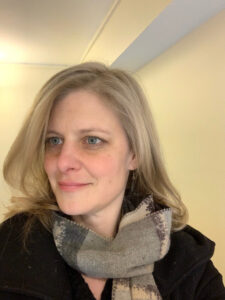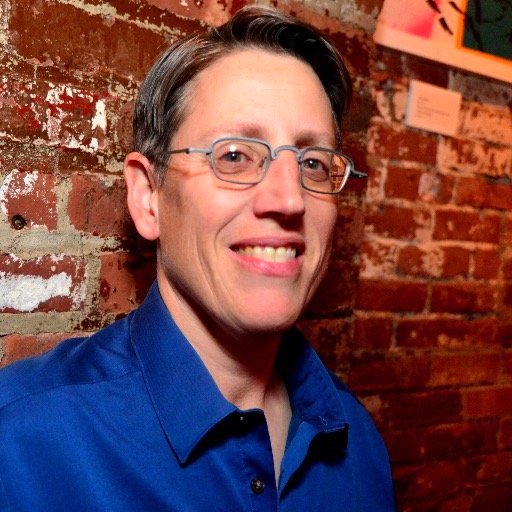By Jen Bonardi
The COVID-19 pandemic robbed us of many small businesses that we hoped would thrive well beyond 2020—cafes, bars, theatres, all struggling and finally collapsing under the weight of a stalled economy. Events management in the time of social distancing grew anemic and, as the winter solstice approached, only the heartiest of Bostonians continued to suffer at outdoor venues. Still, I was surprised to receive the email on a November morning announcing that The List, a queer institution, was converting to a Facebook page and shifting all operational duties to its 20+ sponsors. “End of an era,” I muttered, and shook my head.
Until recently, The List: Boston’s Queer Agenda was an online newsletter of upcoming events, housing opportunities, and classified advertisements for LGBTQ people across Massachusetts. With 25 years of operation and over 10,000 subscribers, it is an unqualified success in its original mission to connect queer women to each other. This belies its inauspicious beginnings as a simple list of events compiled by Hannah Doress in a push to revive the queer women’s scene in Boston that had virtually collapsed by 1995.
“There was almost nothing to do,” Doress explained on our call. “There was no regular publication of events. It was so damn boring. It was terrible.” Doress began aggressively researching opportunities for queer women to get together because they wanted to find community, friendship, and (especially) love. “One of the tragedies that you’d have to deal with repeatedly is meeting someone really cool one night…and never seeing them again,” she said. “It was not at all like today, with so many ways to connect. We had such limited tools when we started. The List was born at a time when it was a lifeline.”
At some point in her description of those times, I interjected, “I should tell you that I went to Tufts undergrad and I’m turning 44 this weekend.” She knew what that meant: from 1994-1998, I was in college just outside of Boston. I knew well the days of yore, when that eager dude in my college queer club would always bring a list of events geared entirely toward white, gay men. When we girls would try to bum a ride to Western Mass so we could troll the women’s colleges there. When someone suggested we follow the BDOC (Big Dyke on Campus) around the Jamaica Plain neighborhood (chockablock with lesbians) in order to find dates, and it seemed like a solid idea. Our only idea.
We needed a hero, and Doress practically came equipped with a cape. She grew up in Boston in the 1980s, an activist with a political organizing perspective and fundraising skills. She had a broad perspective and lots of resources, including a library job at Harvard’s School of Public Health. And perhaps most importairntly, Doress was, in her own words, “insanely extroverted, completely off the charts social” and keyed into happenings in different parts of the city.
Doress had just started using technology to meet people. She bought an early personal database organizer, programmed it with questions, and surveyed women she met at queer events while recording their email addresses for The List. Doress was especially committed to letting people know about LGBTQ institutions and artists that did not get the attention they deserved.
Through her events production companies like Hanarchy Now, she created Accidental Fundraisers. Their invitations on The List would say, “Come to this party and bring $5,” and the money went to, for instance, fighting an anti-LGBTQ initiative in Maine. This level of activism is pretty commonplace now, but was not at all common then. Doress’s perspective at the time was that the older guard did not like the pro-sex message of the younger generation. She concedes that it was a totally different political battle for older folks but still felt that they were not moving toward inclusivity. For her, The List presented an opportunity to create a more expansive, representative queer community.
Before she created The List, Doress felt excluded from queer circles. In fact, most List volunteers were not necessarily comfortable attending a typical lesbian event. Her keen eye toward including the more marginalized folks within our community is likely why The List boasted a regular cohort of trans volunteers. Doress remembers visiting a trans support group in Waltham early on to invite the members to List events. When trans woman Rita Hester was murdered in 1998, Doress successfully used The List to assemble queer people for a public response. That same year, Hanarchy Now produced “The Art of Transformation: A Coming Out Party for FTMs” at Mass College of Art; most of the organizers were lesbians from The List.
It’s clear that Doress put much effort into finding and supporting vulnerable groups in queerness, like Black and South Asian people. Growing up white in Boston with parents active in the civil rights movement, she was acutely aware of and pained by Boston’s racial segregation. Naturally, she was looking for ways to enact multi-racial collaboration. Pride parties in Boston at the time were expensive, brightly lit, in the lobby of City Hall, and very white. Doress recognized that “you have to engage with leadership of color to build towards a transformative result” and is grateful to have worked with fabulous organizers like Amatul Hannan and Imani Henry.
Here is where the interview gets surprising. I had no plans to ask questions about what role bisexuals played in The List, even as we were discussing her ardent support for vulnerable groups within the larger queer community. Sure, I was writing this article for a bi+ publication, but I didn’t expect any specific interest there. I had already registered deep disappointment in seeing zero bisexual organizations among the 23 that will edit The List beginning in 2021. (I discovered later that The List had invited the Bisexual Resource Center to join their editing team. The BRC declined for the time being due to capacity issues.)
But suddenly, Doress urged me to speak to the other folks who edited and managed The List and especially encouraged me to ask them if they identified as bi. I had just assumed they identified as lesbian. As it turns out, many bisexuals have served among the cadre of List volunteers and leaders over the years. Then, Doress asked that I relay a message to Robyn Ochs (editor of this publication) on how she has always greatly admired her. Doress came out into the bi community and has steadfastly loved and supported us. She confessed that she has always considered bisexuals to be “the ideal people.” No one ever says that, either.
When she told me that she fought for bi inclusion at Wesleyan, I realized that that was years beforemy college queer group’s annual meeting on bisexuality stopped devolving into near-fist fights (not joking). In the late ‘90s, she remembers calling bi organizations before the Action Pride Party for Women of Color and saying, “We want to make it clear that bi people are very welcome to this event.” The List’s inclusion included us, and that was revolutionary.
Nevertheless, obstacles persist. Most queer organizations today are still biphobic, and unabashedly so. Boston continues to be aggressively racist on a social level. Indeed, the entire United States has regressed in racial equality under Trump—or, really, we were always this terrible. Doress laments how hard it was to find spaces for events in the old days; nothing different there either. The incredible advances in social technology have not erased the challenges of maintaining a venture like The List. “It’s a lot of work. It’s not automated. It takes a lot of management,” says Doress.
I was heartened to hear that the first of her recommendations for leadership was rejoicing. “For 25 years, we’ve had this resource that’s made such a difference. Let’s celebrate and thank people for carrying this for 25 years! They carried my baby!” says Doress. She believes deeply in the need for both joy and communication with each other. “We need to ask ourselves: How are we going to be there for each other in these pressured times? Be ready to help your friends.”
She goes on to counsel that if you love something, you need to invest in it. “We’re in economic freefall. We have delusional politicians. Everything you love is threatened. There’s violent racism, income inequality, and a disastrous political system. Focus on the political and economic needs in our community and invest in them—through a business, a newsletter, anything.” Step one, says Doress, is conceptualizing and projecting a utopia. This allows us to frame a culture and community, such as celebrating trans people.
From where I stand, Doress’s greatest power as a role model is her passion for lifting others up. She is most animated when talking, for example, about Eve Alpern’s amazing set work for an event with a fashion show and a butch stripper, or how Amatul Hannan got Chinese lion dancers to perform outside Mass College of Art. Hannah Doress started with a list of events and email addresses gathered via paper and pen. As subscribers began sending in submissions and editors established deadlines, she stuck to what she was good at: being a catalyst.
Her last bit of wisdom is that “Nothing lasts forever. We have stunning, bad-ass talent. They’re doing a lot of things. They will need to move on.” Although she moved on from The List long ago, she uses what she learned there in her current work on climate change. Doress leaves behind a legacy of unprecedented unity among queer women in the Boston area. For bisexual women, she used The List to love us when no one else did.
Jen Bonardi served on the Bisexual Resource Center (BRC) board for five years and created bisexual character extraordinaire, Tiggy Upland.

Jen Bonardi

